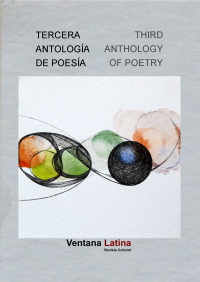‘A beautiful, bountiful country torn apart’
In her investigation A Hero’s Curse: The Perpetual Liberation of Venezuela (UK: Hurst, April 2017, US: Oxford University Press, May 2017), the Swedish journalist Kajsa Norman tells the story of “the modern Venezuelans whose lives have taken shape in the shadow of Simón Bolívar and his most passionate disciple, Comandante Hugo Chávez.”
It is November 2013. A stray dog urinates on the empty dance floor of Flamboyant Beach Club, overlooking the Playa El Agua on the tropical Island of Margarita.
The beach used to be the main draw for large numbers of foreign tourists. Today, it is practically deserted. Granted, it’s Monday and it’s the end of November, a few days before the high season. But years ago, that didn’t matter.
Two hungry beach vendors circle my friend Rita and I like sharks. They introduce themselves as Fernando and Angel.
“But people call me el conquistador del Mercosur, because of my success with the ladies. Where are you from?” asks Angel.
“Sweden.”
“Aaaah, it’s been a long time since I met Swedish ladies here,” says Fernando, who has worked the beach as a vendor for thirteen years.
“Before, this place used to be packed, like the beaches of Europe. But about seven years ago tourists stopped coming. Now we only get the odd couple from Brazil or Colombia, and a few Russians.”
We walk along the beach past the rows of deserted restaurants and small businesses barred shut. A concession stand owner tells me he didn’t sell a single bottle of Coke this past weekend.
Although he just bought his little place six months ago, he is already contemplating selling. If he can.
It feels eerily abandoned. We pass one dilapidated structure after another; walls crumbling, plants growing inside houses, nature slowly moving in to reclaim its territory.
“What happened?” I ask Fernando.
He’s quiet for a moment, fiddling with a long Rasta braid.
Then he looks at me and answers simply:
“Politics.”
* * *
In Caracas, endless rows of American-style SUVs stand still, stuck in the regular traffic jam that marks much of the day. In the shadows of shimmering skyscrapers, surgically enhanced women parade the streets shopping. It’s the national pastime. It seems more reminiscent of Texas than a country in the midst of a socialist revolution.
I arrive in Venezuela at the outbreak of “the war” against the “bourgeoisie parasites.” In a televised speech, President Nicolás Maduro orders the national guard to occupy the stores of the electronics chain Daka and lower their prices—by force.
“A small, modest air condition unit, 36,000 bolívares. Please! That’s the bourgeoisie when they feel powerful. They abuse the poor and the people. They are selfish, petty egoists, thieves and anti-Christians. They take from the poor to enrich themselves … I want to inform the people of Venezuela that the managers of this company have been detained by the national intelligence service and will be placed before the prosecution. And the owners of this company will have to pay for this robbery against the people. It’s over. Enough abuse of the people!” Maduro thunders.
It is time to launch an “economic defensive” to win the war being waged against the people, he explains.
“Nothing should be left on the shelves!”
Mobs rush the stores, hauling away televisions and other appliances past the queues that snake around the block. Old ladies stumble under the weight of stacked microwaves, blenders, and air-conditioning units, sometimes taking two or three of the same item. People leaving the stores approach the queue offering their booty at hefty mark-ups. Meanwhile, those near the front of the queue try hawking their places to others arriving late.
While socialism may be driving the bargains, in the masses here there is nothing but capitalism. Salvage capitalism.
In Valencia, dozens of looters are caught on video surveillance as they flee Daka electronics with their arms full of stolen television sets and appliances. Even soldiers join the fray, helping themselves to flat screens.
Within hours, most electronics stores are completely cleaned out. Soon, the whole country is “on sale”. What started as an offensive against electronics stores spreads to a wide range of merchandise, including food, clothes, footwear, hardware, vehicles, and toys.
Some stores limit the number of items each customer can purchase. Others limit the number of customers allowed in the store at any one time. Some lower iron bars over their entrances, leaving only a gap at the bottom for people to crawl in.
In an effort to contain the chaos, Maduro takes to the airwaves to reassure people that it is not a sale but a permanent decrease in prices. But nothing appears to constrain the shoppers’ madness.
The queues persist. Everyone wants their turn, for they instinctively understand that once the goods are gone, these stores will never open again.
Maduro supporters claim that the merchants deserve their fate. Many have received US currency to purchase their imports at preferential, state-regulated rates. Therefore, by their logic, these are the people’s goods.
Critics argue that regardless of the acquisition cost, the merchandise belongs to the storeowners. Forcing them to sell at prices they didn’t set is the equivalent of theft. Meanwhile, inflation climbs to 54 percent, putting Venezuela in the top three worldwide, ahead of Syria. Toilet paper, milk, and other basic food items are nearly impossible to find. Venezuela now imports 70 percent of its food.
“Wait until you see people fighting over the last roll of toilet paper,” I’m told.
I never do. When I manage to time a delivery of groceries at a Caracas Bicentenario store, the militia arrives to maintain the order. And they need to. When demand for essential goods exceeds supply in a country plagued by violence, things can quickly get out of hand. In 2013, Venezuela was branded the most dangerous country in Latin America, with its murder rate amongst the highest in the world.
Yet the country has all the prerequisites for wealth. Venezuela is the world’s fifth largest oil-exporting country and has the world’s largest proven oil reserves (an estimated 296.5 billion barrels). For decades, Venezuelans have paid next to nothing for their gas. Consequently, traffic is virtually unnavigable. In this land of salvage entrepreneurs, those who live near Colombia or Brazil haul canisters of gas and subsidized food to the border where they can sell it for substantial profits.
As much as socialism may be the popular philosophy, capitalism is the popular practice. And almost everyone is fighting— either fighting to get ahead in a system built to encourage loyalty over merit, or fighting the system in its entirety.
This book is the story of Venezuela told through the experiences of five people, each fighting for their own vision of the country.
There is Folco Riccio, the architect who dreams of social and economic development; María Corina Machado, the steel heiress turned politician, determined to leave her mark on history; Antonio Rivero, the general constantly challenging those in power; Juan Carlos Requesens, the student leader struggling to walk the line between violence and influence; and of course Hugo Chávez Frías, the father, the son, and the ghost, inspiring his loyal followers onward in their efforts to remain relevant.
Each of the protagonists follows their own hero’s journey, heeds their own call to purpose, and fights their own demons. Together, their life stories tell the tale of a beautiful, bountiful country torn apart by competing dreams and uncompromising dreamers.
Kajsa Norman is a London-based investigative journalist and author focused on dictatorships and conflict zones. She has previously published books on Cuba, Zimbabwe and South Africa. She has also served as a press and information officer for the Swedish Armed Forces in Afghanistan and Mali.




 Copyright © 2024
Copyright © 2024